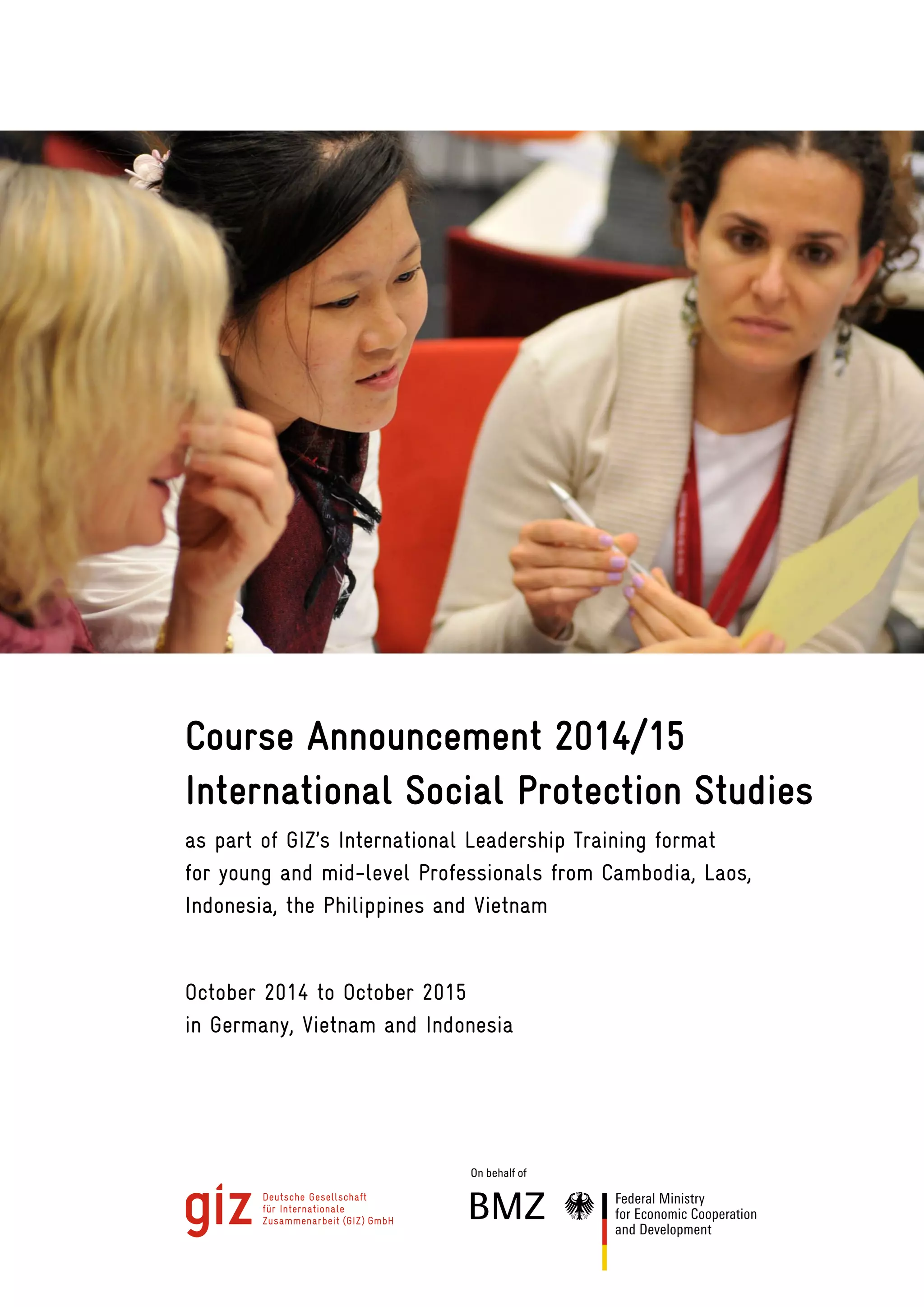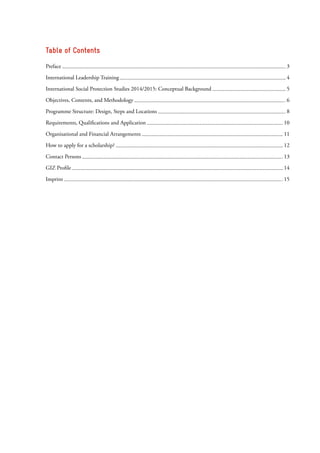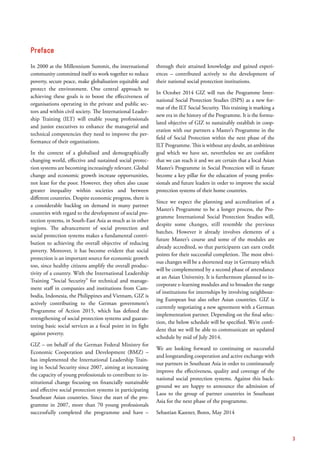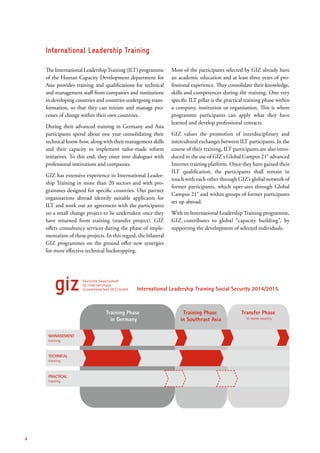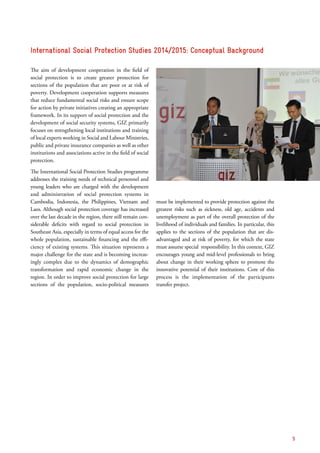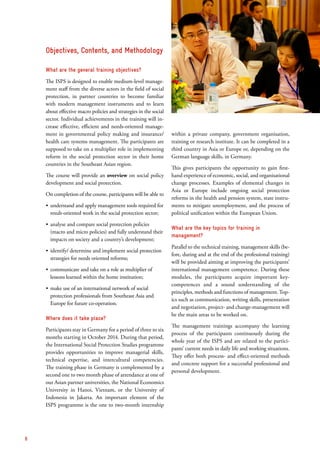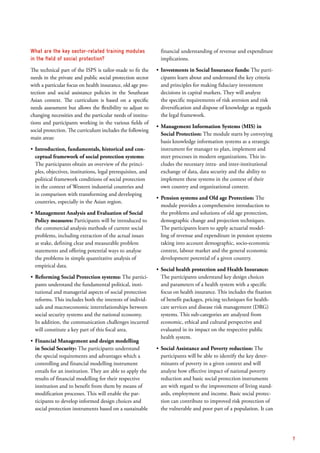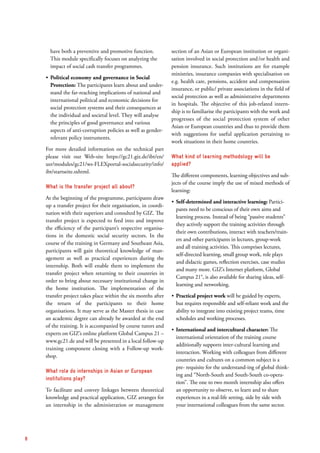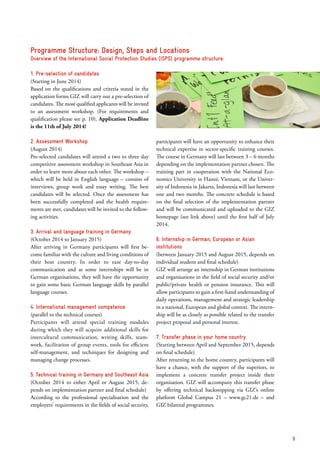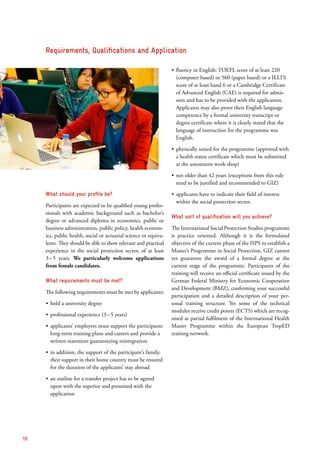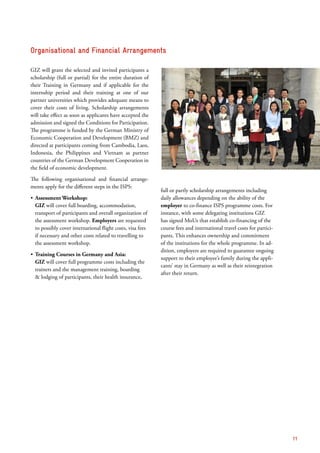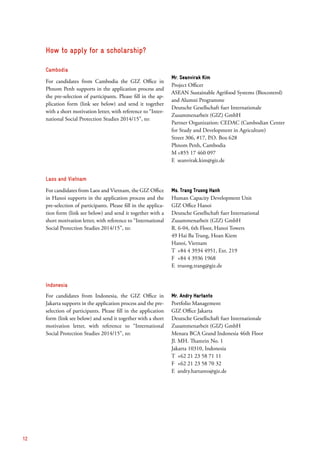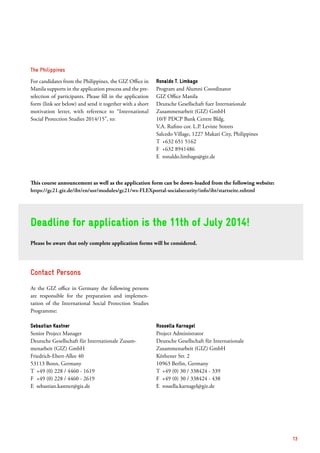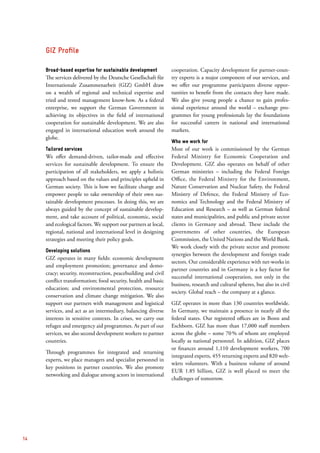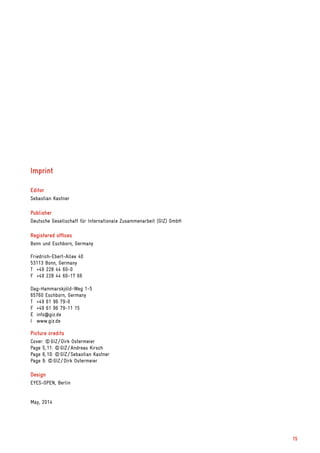This document announces and provides details about the International Social Protection Studies program from October 2014 to October 2015. The program will train young and mid-level professionals from Cambodia, Laos, Indonesia, the Philippines, and Vietnam in social protection management and policy. Participants will spend time in Germany, Vietnam, and Indonesia developing technical and management skills through coursework, practical training, and an internship. The goal is to build their capacity to contribute to strengthening social protection systems in their home countries.
